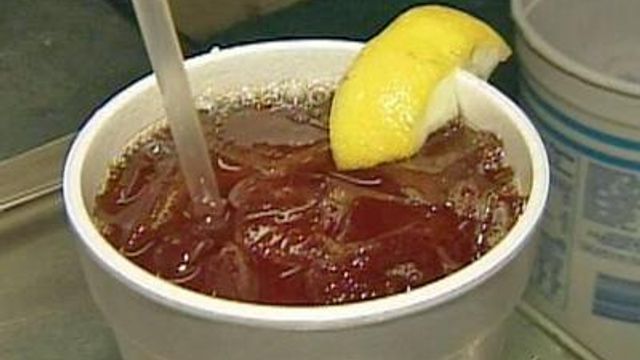Does Bacteria on Lemon Slices Endanger Diners?
A video making the rounds on the Internet warns of dangerous bacteria on lemon slices served in restaurants. An N.C. State University professor, however, says there's nothing to worry about.
Posted — Updated"Those lemons are spiking your drink with germs, everything from the stuff that causes staph infection to fecal bacteria," the video says.
The video's warning is based on a study conducted by Professor Anne LaGrange Loving of Passiac County Community College in New Jersey. She tested lemon slices served at restaurants and found 25 microorganisms on them, including E. coli.
"That creates a witch's brew of bacteria," the video says.
However, Dr. Lee-Ann Jaykus, a microbiologist with N.C. State, urges caution when considering the results of Loving's study.
"The reality is that we live in a world full of bacteria, and we all consume millions of organisms a day. And they're completely harmless," Jaykus said.
Most of types of E. coli do not make normal, healthy people sick, Jaykus said.
"I think this is much ado about nothing," she said. "And I believe I can actually speak for many of my colleagues that they believe the same.
"I think the public should not worry about lemons in whatever it is that they're drinking, whether it's iced tea or squirting it on some fish or a glass of water."
Via a telephone interview, Loving disagreed with Jaykus' opinion that the presence of bacteria on lemon slices does not create a health risk.
The Internet report sensationalized the findings of her study – which was not her intent, Loving stressed.
"It's not so much a point of alarming people," Loving said. "It's just making people aware that the lemon slice could have been handled improperly.
"And then, the bigger point: If the lemons are being handled improperly, what about the cutlery? What about this, what about that?"
Jaykus said she is concerned that such reports overshadow serious health risks.
"One thing we try to do as food-safety professionals is we don't want to be cavalier about true dangers," Jaykus said. "But at the same time, we don't want to have the public unnecessarily alarmed about something that really is not a risk.
"And that's what's happened with this incident."
The bottom line: Loving said she has stopped ordering lemons in her beverages at restaurants. Jaykus said she will continue to order them.
• Credits
Copyright 2024 by Capitol Broadcasting Company. All rights reserved. This material may not be published, broadcast, rewritten or redistributed.





